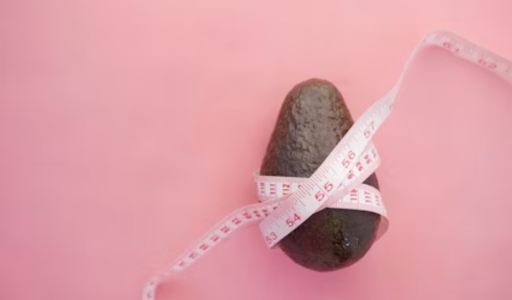Discover the Shocking Method Researchers Found to Melt Pounds Away Forever!
By
- Replies 0
Losing weight and keeping it off can often feel like an uphill battle, especially for those of us who have seen many diet trends come and go. But new research has shed light on a method that might be the key to sustainable weight loss, and it's not as complicated as you might think.
The secret? It's all about timing and the quality of the food you eat. According to Dr. O'Neill, the timing of your meals can significantly impact your body's ability to process food efficiently. This approach aligns with our body's natural glucose sensitivity, which is higher in the morning. By starting your day with a protein-rich meal, you're setting yourself up for sustained energy and reduced cravings.
Consider options like eggs, scrambled tofu, or a hearty protein smoothie instead of reaching for the usual high-carb toast or cereal. These choices can help keep you full and satisfied, reducing the likelihood of mid-morning snacking.
When lunchtime rolls around, focusing on fibre and protein is crucial. Aiming for 20-30 grams of protein in your midday meal can help maintain that feeling of fullness throughout the afternoon. This could mean adding a lean chicken breast to your salad, enjoying a lentil soup, or having a slice of quiche packed with veggies.
Dinner should be the final meal of your feeding window, and Dr O'Neill suggests making it a lighter affair. As the day winds down, so does your metabolism, and eating a heavy meal late at night can disrupt your sleep and lead to weight gain. Instead, opt for a simple, balanced meal that satisfies without overloading your digestive system.
And what about those late-night cravings? Dr O'Neill advises against midnight snacking. As your body prepares for rest, it's better to sleep than to give in to the temptation of cheese, biscuits, or chocolate. Eating late at night can not only make it harder to fall asleep but can also trigger a 'second wind' that keeps you awake and raiding the pantry.
So, what's the takeaway for our savvy seniors looking to shed a few pounds? It's not just about what you eat, but when you eat it. By aligning your meals with your body's natural rhythms, you can lose weight and improve your overall health.
Remember, sustainable weight loss isn't about drastic diets or punishing exercise regimes; it's about making small, manageable changes that you can maintain in the long term. As always, before making any significant changes to your diet or lifestyle, it's wise to consult with a healthcare professional.
 We'd love to hear from you, our Seniors Discount Club members. Have you found success with timing your meals or focusing on protein and fibre? Share your experiences and tips in the comments below – your insights could encourage someone else to start their weight loss journey!
We'd love to hear from you, our Seniors Discount Club members. Have you found success with timing your meals or focusing on protein and fibre? Share your experiences and tips in the comments below – your insights could encourage someone else to start their weight loss journey!
The secret? It's all about timing and the quality of the food you eat. According to Dr. O'Neill, the timing of your meals can significantly impact your body's ability to process food efficiently. This approach aligns with our body's natural glucose sensitivity, which is higher in the morning. By starting your day with a protein-rich meal, you're setting yourself up for sustained energy and reduced cravings.
Consider options like eggs, scrambled tofu, or a hearty protein smoothie instead of reaching for the usual high-carb toast or cereal. These choices can help keep you full and satisfied, reducing the likelihood of mid-morning snacking.
When lunchtime rolls around, focusing on fibre and protein is crucial. Aiming for 20-30 grams of protein in your midday meal can help maintain that feeling of fullness throughout the afternoon. This could mean adding a lean chicken breast to your salad, enjoying a lentil soup, or having a slice of quiche packed with veggies.
Dinner should be the final meal of your feeding window, and Dr O'Neill suggests making it a lighter affair. As the day winds down, so does your metabolism, and eating a heavy meal late at night can disrupt your sleep and lead to weight gain. Instead, opt for a simple, balanced meal that satisfies without overloading your digestive system.
And what about those late-night cravings? Dr O'Neill advises against midnight snacking. As your body prepares for rest, it's better to sleep than to give in to the temptation of cheese, biscuits, or chocolate. Eating late at night can not only make it harder to fall asleep but can also trigger a 'second wind' that keeps you awake and raiding the pantry.
So, what's the takeaway for our savvy seniors looking to shed a few pounds? It's not just about what you eat, but when you eat it. By aligning your meals with your body's natural rhythms, you can lose weight and improve your overall health.
Remember, sustainable weight loss isn't about drastic diets or punishing exercise regimes; it's about making small, manageable changes that you can maintain in the long term. As always, before making any significant changes to your diet or lifestyle, it's wise to consult with a healthcare professional.
Key Takeaways
- New research emphasises the importance of a protein-rich breakfast for better weight loss outcomes.
- A recommended intake of 20-30 grams of protein for lunch can help maintain satiety for longer periods.
- Opting for a lighter meal at dinner can be beneficial and may help avoid the temptation to snack late at night.
- Avoiding midnight snacking is advised as it can disrupt sleep and increase the likelihood of indulging in less healthy snack options.








